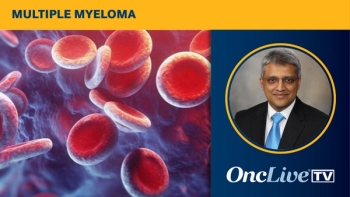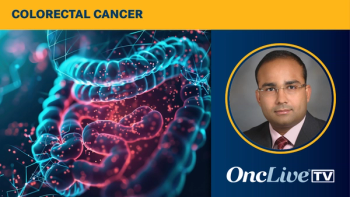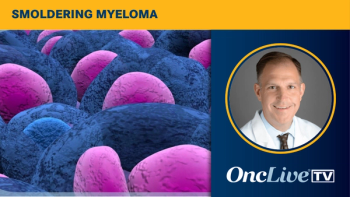
Dr. Klein on the Importance of the Importance of Prognostic Genomic Assays in Prostate Cancer

Eric A. Klein, MD, discusses the importance of providing genomic testing to patients with prostate cancer.
Eric A. Klein, MD, professor, Department of Surgery, School of Medicine, member, GU Malignancies Program, Case Comprehensive Cancer Center, Case Western Reserve University, chairman, Glickman Urological & Kidney Institute, Taussig Cancer Institute, Cleveland Clinic, discusses the importance of providing genomic testing to patients with prostate cancer.
Genomic testing can offer crucial insight into a patient’s disease, says Klein. Moreover, results of genotyping can inform treatment selection.
For example, on May 15, 2020, the FDA granted an accelerated approval to the PARP inhibitor rucaparib (Rubraca) for the treatment of men with metastatic castration-resistant prostate cancer that is associated with a germline or somatic BRCA mutation who have been treated with androgen receptor—directed therapy and taxane-based chemotherapy.
Providing genomic testing can inform the molecular aggressiveness of early-stage prostate cancer, help determine which patients should receive active surveillance versus immediate intervention, identify patients with high-risk cancer, and determine which patients are likely to benefit from early radiation after radical prostatectomy, concludes Klein.


























































































